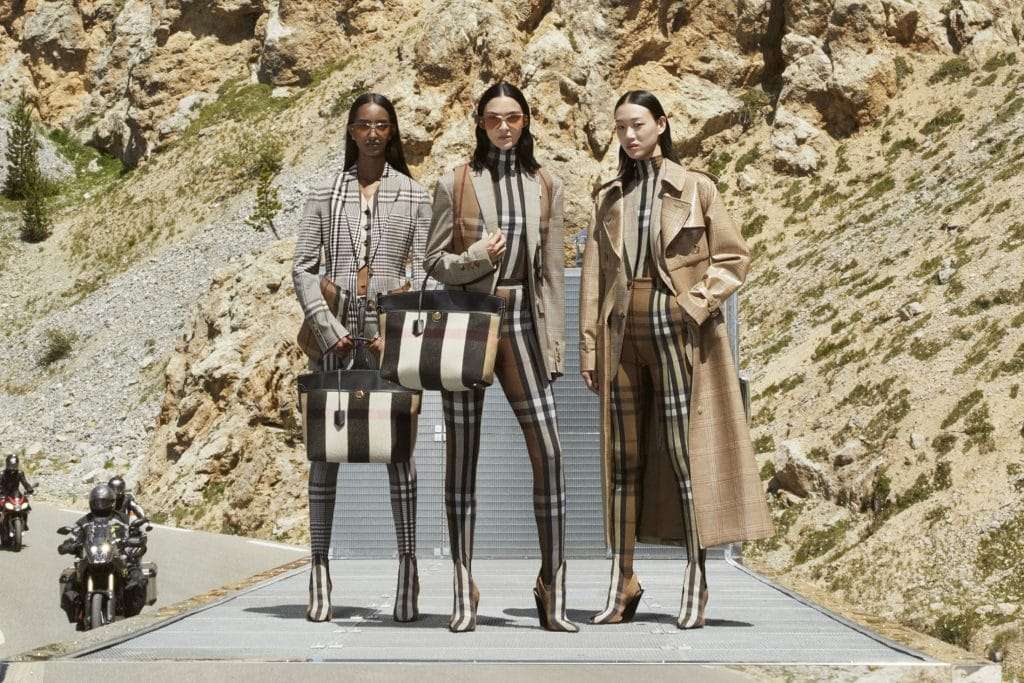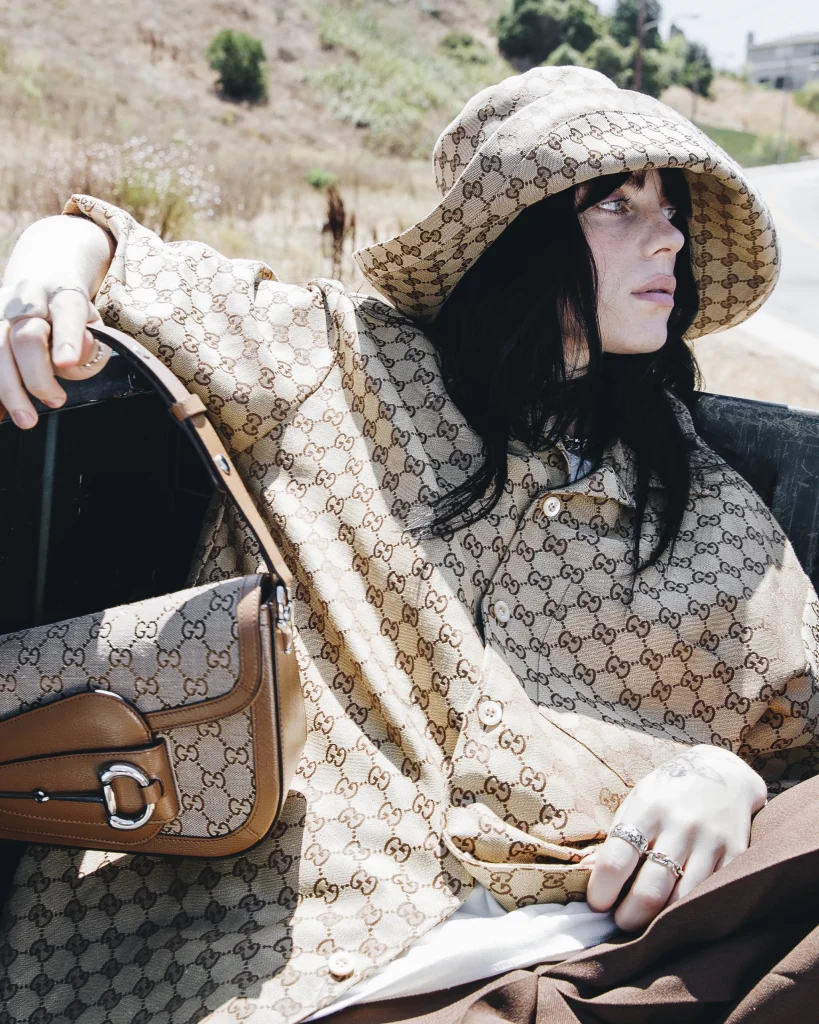Burberry is trying to do right by the planet. At least, it certainly seems that way.
Just recently, British luxury label Burberry teamed up with secondhand luxury resale platform Vestiaire Collective to encourage customers to embrace a more circular approach to shopping. It works like this: Brits and Americans send in their old Burberry items to Vestiaire, which then have to be checked and verified before they are accepted. After that, customers receive a Burberry gift card for the value of the traded items.
Without a doubt, the partnership will help to reduce waste. Right now, approximately one garbage truck full of textiles turns up at the landfill every second. The problem is colossal, and it requires major, influential brands, like Burberry, to take action and find solutions.
But Burberry isn’t perfect. Its virtual and in-store shelves are still stocked with leather, for example, which is a leading driver of pollution and deforestation. Burberry is on the right path, but more dramatic moves are needed to make to truly reduce its environmental impact.
Burberry makes big moves towards sustainability
Burberry is one of the most sustainable brands in the luxury market. In 2020, the label was included in the Dow Jones Sustainability Index for the sixth year running, achieving its highest score yet. And in 2022, it announced it had received a $410 million loan to support its environmental, social, and governance (ESG) targets.
Its sustainability commitments include reaching net zero emissions by 2040. A vital goal, considering fashion is currently responsible for around ten percent of the world’s annual greenhouse gas emissions. It has also set up its own Regeneration Fund, to promote diversity, sequester carbon, support local communities, and restore ecosystems. “Part of being climate positive is working beyond your own initiatives,” said Burberry vice president Pam Batty.

As well as resale, Burberry has also embraced rental platforms. In 2021, it announced a partnership with rental and resale app My Wardrobe HQ. More recently, it partnered with sustainable soccer gear brand Able Made on a new deadstock collection made with the luxury brand’s old fabrics.
The next step? Remove animal products
Burberry is leading the charge towards sustainable luxury fashion. But there is always more that can be done.
Leather is integral to a number of its signature designs, but this material is driving the very biodiversity loss that Burberry is trying to tackle. That’s because it’s a leading driver of deforestation. In fact, according to Collective Fashion Justice, land clearing for cattle (used for beef and leather) is responsible for around 80 percent of Amazon’s destruction.

All of those cows also produce a heck of a lot of methane, too. The greenhouse gas is 25 times more potent than carbon dioxide, and over the course of one year, just *one* cow will belch out around 220 pounds of it.
Leather also requires tanning, which often involves the use of chromium, a carcinogenic heavy metal. It can be tanned using vegetable-based methods, but this makes up only around 10 percent of the market, according to Collective Fashion Justice.
A handful of luxury brands have decided to boycott leather completely due to its monumental environmental impact. In 2021, Danish brand Ganni announced it was phasing out leather for good. In 2022, it partnered with Bolt Threads, a leading biomaterials brand that makes vegan leather with mycelium, to encourage more brands to follow its lead. Last month, luxury label Gucci partnered with singer Billie Eilish on its first fully vegan handbag made from its Demetra bio-based leather.
“Selling leather products, although highly profitable, will soon be as outdated as smoking on TV,” Ganni founder Nicolaj Reffstrup said in a statement back in 2021.
Stella McCartney, another British luxury label, has never used leather in its collections. And in 2019, following a slew of fur and animal skin bans in the fashion industry (including one from Burberry), the brand’s founder Stella McCartney herself called on more luxury brands to put their money where their mouth is and ditch leather, too.

“It’s one thing to give up fur, but [many of those brands] weren’t really selling fur. Or to give up exotic skins when, really, who’s buying exotic skins anymore? That’s not really a market,” McCartney told Vogue.
“It’s a good message, but [those statements] can feel a little throw-away,” she continued. “What’s the difference between an exotic skin and a cow skin? I don’t get it—that’s the same conversation to me. If you really mean it, stop using leather, full stop, and then you’ll see a massive, massive change in the industry’s environmental impact.”
Related on Ethos:


